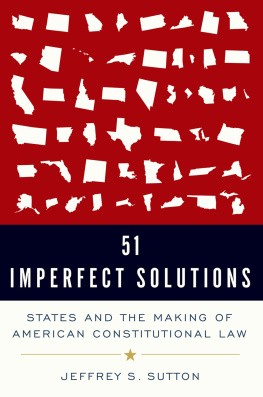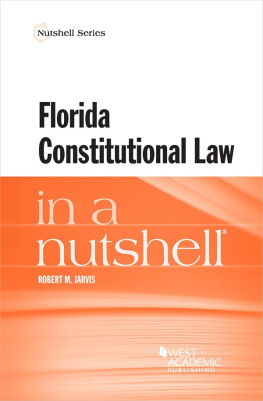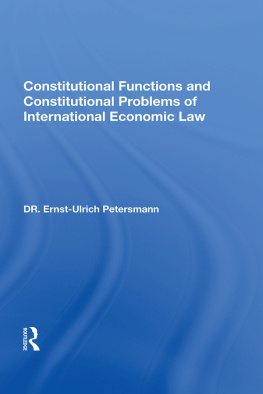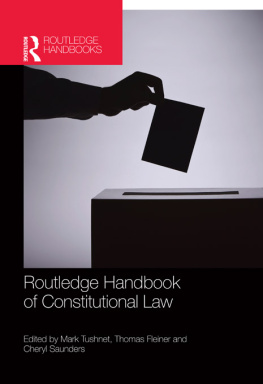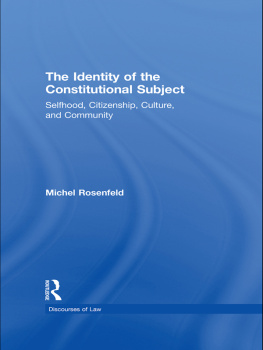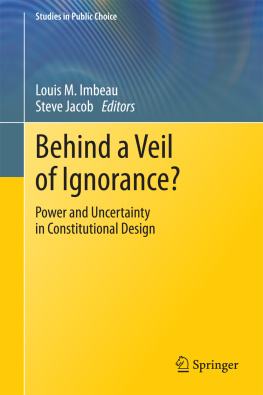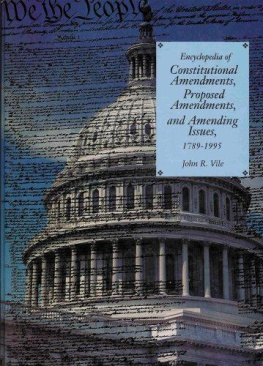Part IV
New challenges
Introduction
Mark Tushnet
Every nationindeed, every institution that has a more or less continuous life over a reasonably sustained periodhas a constitution, understood to be a way of organizing the exercise of collective power within the nation and institution. And every nation has constitutional law, understood as a series of normative regularities in powers actual exercise. A half-century ago, a handbook on constitutional law would have taken its domain to be the constitution of a single nation. Today, the appropriate domain is the world. For this Handbooks editors, constitutional law is the genus, the constitutional law of individual nations the various species. Our decision to give the book the title Handbook on Constitutional Law rather than Handbook on Comparative Constitutional Law was quite deliberate.
Yet, to pursue the biological metaphor, our work evolved from the field of comparative law, in which studies of constitutional law have had a contested place. The Montesquieuan standpointthat every nations laws grew out of that nations specific experiences and character (and geography)was difficult to supplement, much less displace in comparative law generally. The sense that public law remained nationally distinctive retained its hold even when increasing commercial interactions within Europe, between Europe and the Americas, and between European powers and their colonies made it possible to see how the similar functions performed by private law in different societies could support serious comparative work. During the period when scholars of comparative law devoted a great deal of attention to classifying families of legal systems (David & Brierley; Zweigert & Ktz), constitutional law seemed even more an outlying field because the core distinction in comparative law between common law and civil law systems, drawn initially because of different ways of doing private law, did not seem to correspond well with the observed variations in constitutional law. A classic study demonstrated, for example, that the major variants of constitutional reviewcentralized or diffuse, abstract or concretewere compatible with both civil and common law traditions (Brewer-Carias).
The integration of regional economies in Latin America and Europe produced some work comparing constitutions within those regions, but interest in constitutional law as a global phenomenon was driven primarily by successive waves of constitution-makingin the immediate aftermath of World War II, in the period of decolonization, in response to a democratization wave in South America in the 1980s, and probably most importantly with the end of the Soviet Union and its domination of central and eastern Europe and the end of the South African apartheid regime in the 1990s. Some of that interest was purely academic, some was associated with the practice of constitutional advice giving to those drafting constitutions, especially in what came to be known as post-conflict societies. The ready availability of information on the internet has simplified researchers tasks. Our analytic tools and our knowledge have grown substantially over the past generation.
Defining the distinctive subject matter of (worldwide) constitutional law remains contested. Because constitutional law implicates the organization and application of public power, its study cannot be hermetically isolated from the study of political power, and indeed there is a field, sometimes identified as constitutional studies, that takes questions about organizing power to be central. Yet, there must be a distinct field of worldwide constitutional law both because of professional specialization and because lawyers are right in thinking that constitutional law, though connected to power, is distinct from it. So, for example, students of political economy have asked whether and under what conditions parliamentary systems are more stable than presidential ones (Linz; Cheibub), or what the economic effects of parliamentary systems are compared with those of presidential ones (Persson & Tabellini). Scholarship in constitutional law notices these studies, but they lie at the periphery of interest. Scholars of constitutional law are likely to be more interested in examining the different ways in which power is distributed between legislature and president in a presidential system, or what powers the executive has in a parliamentary one.
A natural temptation is to take the field to be the study of constitutional ism that is, of a set of normative propositions about the good or wise exercise of public power. One difficulty associated with doing so is that it might constrict the field dramatically. The reason is twofold. First, the criteria for determining when a system satisfies the requirements of constitutionalism are themselves contested: How much protection must a system provide against imposing defamation liability for statements about leading political figures for it to be a constitutional system? One might be inclined to say that the extraordinarily stringent requirements for defamation liability in the United States go beyond the minimum requirements of constitutionalism, but that the lax ones in Singapore cast doubt on whether that nation is a constitutionalist one. Perhaps, but then what of liability standards in Great Britain or Australia in the 1970s? Focusing on normative constitutionalism may produce work dealing with identifying the margins while leaving too much taken for granted.
Second, and related, an enormous range of institutional forms conform to constitutionalisms requirements, once constitutionalism is given a sensible definition. Charles McIlwains definition is widely used in the Anglo-American world: All constitutional government is by definition limited government, he wrote, continuing with, constitutionalism has one essential quality; it is a legal limitation on government; it is the antithesis of arbitrary rule; its opposite is despotic government, the government of will instead of law (McIlwain, 20, 21). With such an expansive definition, constitutional law would consist of little more than the enumeration of the various modes people have devised to limit government. And, perhaps equally important, constitutionalisms focus on limiting government makes it more difficult to discern the ways in which constitutions organize power for its effective use, whether for bad or for the good that constitutionalism seeks to advance.
Defining the field with reference to normative constitutionalism has one large advantagenot enough to overcome its disadvantages, but important nonetheless. Normative constitutionalism provides some baseline for comparisons across systems. We can ask whether one institution does better than another at promoting constitutionalisms values, and under what conditions. So, for example, we can ask whether proportional representation or minority vetoes has done a better job in sustaining constitutionalism in post-conflict situations where conflict was predicated on ethnic divisions. Methodologists of comparative law generally have worried about the basis for comparison. There functionalism, here constitutionalism can provide that basis. Yet, both there and here, those baselines pose their own problems: functionalism (which has its attractions in public as well as private law) can push national distinctiveness to the background, just as constitutionalism can lead us to be overwhelmed by variation.


